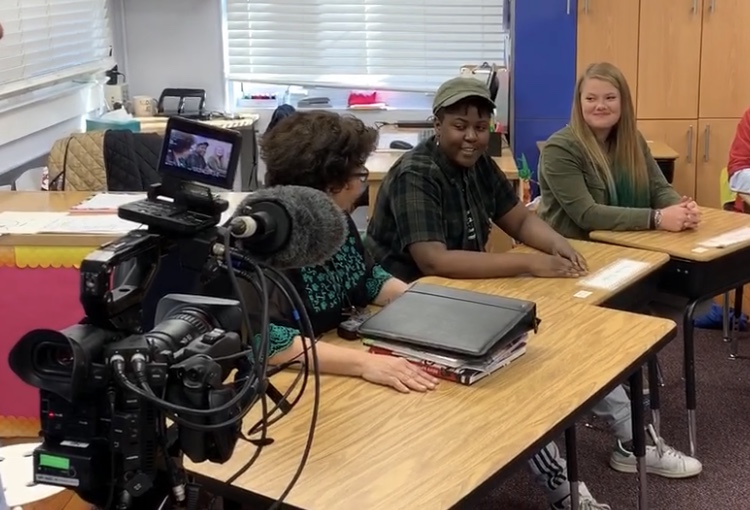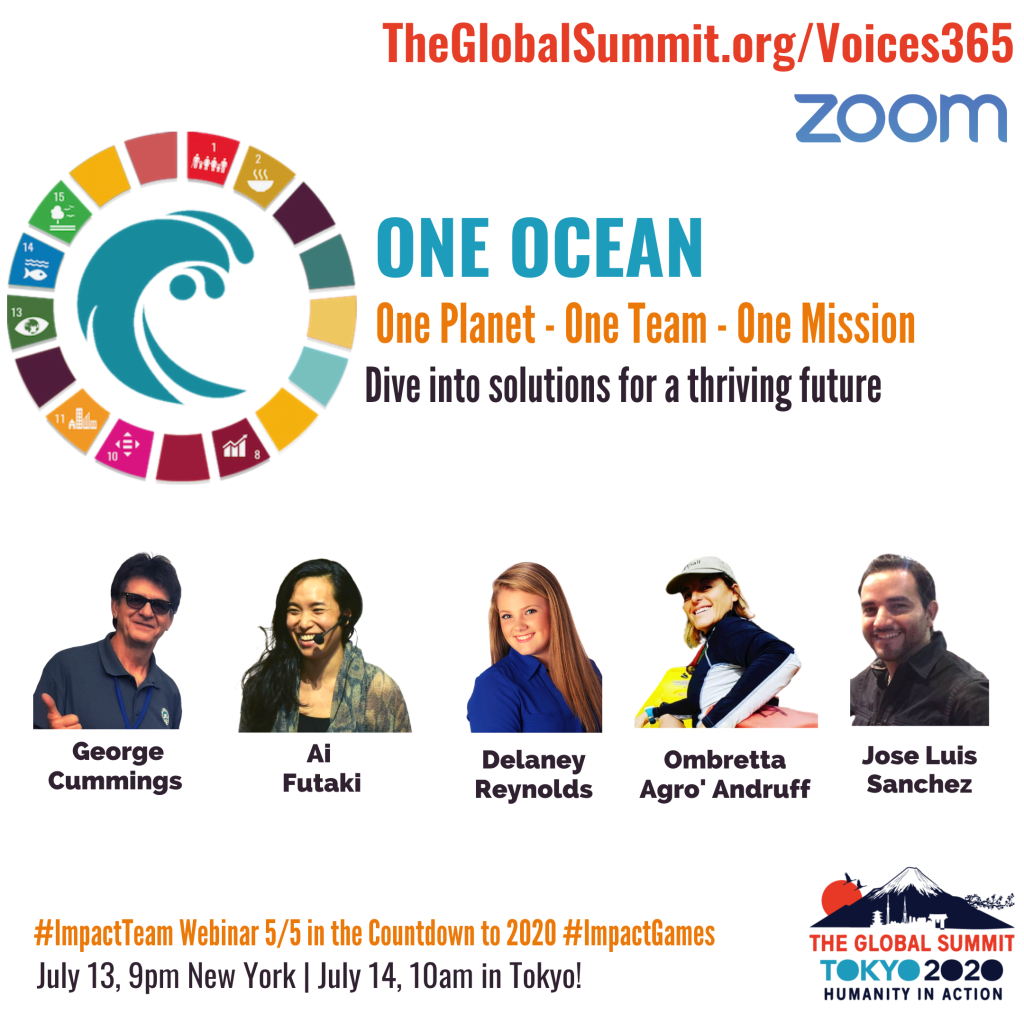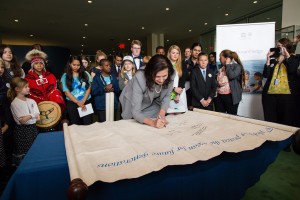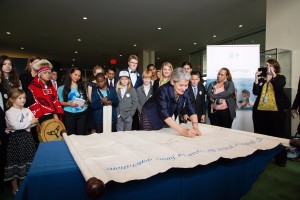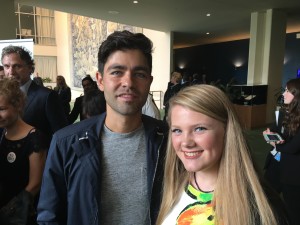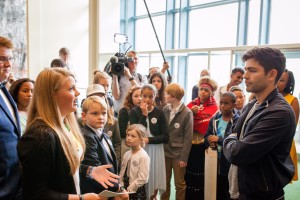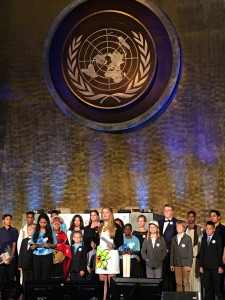
Solving our planet’s climate crisis requires that societies all over earth must evolve from a fossil fuel energy economy to a sustainable one during my lifetime. And for many of the most fragile places on earth and their inhabitants, those most susceptible to rising seas and other risks, the stakes are the difference between survival and extinction.
Every citizen of our planet now faces a crisis that has no boarders, one where people’s language, religion or the color of their skin simply, and thankfully, do not matter. For this reason my recent opportunity to address the General Assembly of the United Nations in New York City was a unique and important chance to draw global attention to the fact that we need all of today’s world leaders to begin embracing change. The type of positive change that our world needs to solve our environmental problems before it’s too late.
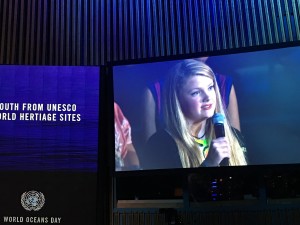
At UNESCO’s invitation, children from all over the world representing their World Heritage Marine sites including some of earth’s most iconic, yet endangered environments, such as Australia’s Great Barrier Reef, Ecuador’s Galapagos Islands and South Florida’s very own Everglades National Park, gathered to ask UN members to join us in pledging their support. The diversity of the children was profoundly beautiful but even more impressive was the passion that these children have for our planet.
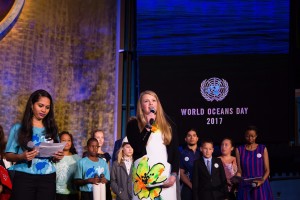
To be asked to speak on their behalf, both for the children that joined me on stage at the UN in New York and children all around the world was the greatest honor of my young life. My speech to the General Assembly sought to define why these special places are so important but to also illustrate that they are at dire risk. As I shared with the audience that day;
…“in our increasingly virtual world, nothing can compare to the majestic beauty of our natural environment, those special places on our planet that touch our hearts and that inspire our imagination.
Such places have had a profoundly important impact on our society for generations but they are also fragile and face many challenges, in some cases even extinction, from risks including coral bleaching, our planet’s climate change crisis, overfishing, pollution from plastics or run off from pesticides to name just a few.”
And we called upon the world’s leaders to join us in taking the #MyOceanPledge by signing a petition that recognizes the environment’s importance to our collective futures. To read more about the petition and why having the world’s leaders join us is so important to all of our futures please click here for Andres Oppenheimer’s timely editorial in yesterday’s Miami Herald entitled World May Not Melt, Despite Trump’s Insane Decision on Climate Change.
Mr. Oppenheimer’s editorial brilliantly recounts a recent interview that he conducted with none other than the United Nations General Assembly President Peter Thomson including his thoughts on President Trump’s short-sighted decision to withdraw from the Paris Climate Agreement. President Thompson knows that the world is serious about solving our climate crisis and he especially knows this based on what he saw and heard from the children and me during the U.N. Ocean Conference. As Mr. Oppenheimer wrote and shared: He said he noticed that movement during the U.N. Ocean Conference held June 5-9, shortly after Trump’s decision. At that meeting, he said, there was a “hugely positive wave” of support for action against climate change, which included “a very big input from America’s civil society, states and cities.”
I noticed it too during my time in New York, at the UN and at the other events leading up to Worlds Ocean Day that we attended. It was everywhere and was what Mr. Oppenheimer quoted Mr. Thompson calling a “tidal wave of support” for action against climate change”.“I think what you’re seeing all the way from Europe to China and in the developing world, indeed everywhere I look, is that people are saying, ‘Hey, this only makes us stronger… I’m confident that people will step up on that. And I remind you that the biggest investors in renewable energy are American investors.”
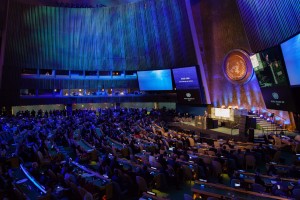
And it was not just ‘talks’ and speeches but people taking action. Important people including heads of state, global business people and many others. People like Prince Albert II of Monaco, the first person to sign our pledge scroll and also someone Mr. Oppenheimer mentioned in his editorial when he wrote: ‘Asked for specific examples of what is being done, Thomson cited the U.N. partnerships with celebrities such as billionaire Richard Branson and Prince Albert of Monaco to petition governments to protect 30 percent of their oceans by 2030. There is already an ongoing U.N. plan to have 10 percent of the oceans protected by 2020, and “I think that’s going to be doable,” he said.’
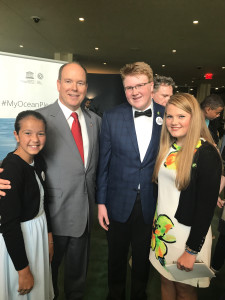
And speaking of Prince Albert II, here is a picture of my brother Owen and me, along with our friend Sarah Ramos, with the Prince of Monaco just after he signed the petition Mr. Oppenheimer wrote about, #MyOceanPledge. As you can see, he sure does not look too stressed about President Trump’s lack of vision or recent decision.During what was an incredible week in New York I had the privilege to get to know children from Papahanamokuakea, Hawaii; Lord Howe Island, Australia; Seychelles; South Africa; Sudan; the Great Barrier Reef, Australia; and the Wadden Sea, Netherlands among other World Heritage Marine sites. And no matter which amazing place these children live in we all shared the same undeniable bond; a deep love of the ocean and our natural environment.
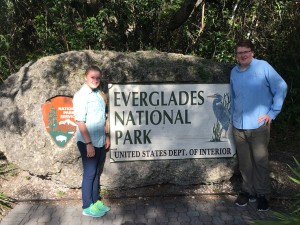 And speaking of amazing places, the Everglades National Park is the only environment of its type on earth. The Everglades is a treasure chest filled with magical, mystical creatures unique to its enchanting and diverse environment, from its mangrove lined coasts and sandy beaches along our ocean’s shore to its majestic pineland forest and slow moving River of Grass. And it’s a big part of why I was invited to address the General Assembly.
And speaking of amazing places, the Everglades National Park is the only environment of its type on earth. The Everglades is a treasure chest filled with magical, mystical creatures unique to its enchanting and diverse environment, from its mangrove lined coasts and sandy beaches along our ocean’s shore to its majestic pineland forest and slow moving River of Grass. And it’s a big part of why I was invited to address the General Assembly.
While working on my book on sea level rise, Sink or Swim?, I had the pleasure of meeting and interviewing Everglades National Park Superintendent Ramos last year about the fragility and importance of this special place. Superintendent Ramos was generous with his time and shared a passion for the Park that left me feeling like the Park is in very good hands with a very good man.
Unfortunately, the Everglades is also at dire risk from all sorts of threats including encroaching development, agricultural pollution and run-off, rising seas and more. Sadly sea level rise alone threatens a large portion of the Park from possibly becoming extinct within my lifetime. As I said, it’s also one of UNESCO’s World Heritage Marine sites but its also a World Heritage in Danger site too given the many risks it faces to even have a future.
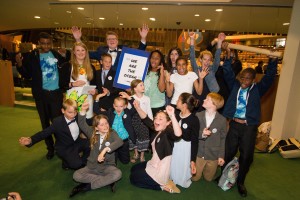
The folks at UNESCO in Paris saw a TEDx Talk I’d given a couple of years ago and, thus, invited me to address the General Assembly and have the honor of representing the Park and our region. And, if that was not enough, I was even able to be joined on stage by my brother, Owen, and our friend, Sarah.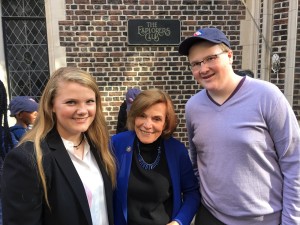 I have countless memories to share with you in future blogs about the outstanding children that joined me in New York, the time that we spent with people like Sylvia (‘Her Deepness’) Earle at The Explorers Club (only one of the coolest places you could ever hope to visit) and the truly exceptional people at UNESCO. I promise to share stories and pictures about all of those things and a lot more in time but, before I end this blog, allow me thank a few special people who were the reason I was honored to be asked to address the General Assembly.
I have countless memories to share with you in future blogs about the outstanding children that joined me in New York, the time that we spent with people like Sylvia (‘Her Deepness’) Earle at The Explorers Club (only one of the coolest places you could ever hope to visit) and the truly exceptional people at UNESCO. I promise to share stories and pictures about all of those things and a lot more in time but, before I end this blog, allow me thank a few special people who were the reason I was honored to be asked to address the General Assembly.
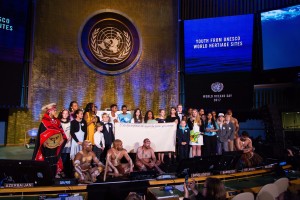
Thanks to UNESCO, The Explorers Club, the Government of Flanders, Stefan and Irina Hearst, The Khaled bin Sultan Living Oceans Foundation, Dr. Fanny Douvere, Robbert Casier, Vanessa Lucot, Nolwazi Mjwara, Taylor Butz from the UNESCO World Heritage Center, Alison Barrat and Elizabeth Rauer from the Living Ocean Foundation, and Joel Sheakoski (for your amazing pictures).To each of you, thank you from the bottom of my heart for the work you do literally all over the world every day to protect some of the most important places on earth.
Thanks to Mom and Dad for facilitating the trip for Owen and me, much less introducing me to New York for the first time. I know that the entire experience was a bit overwhelming so thanks for not crying too much while we were on stage!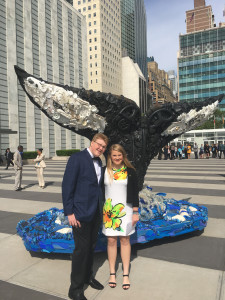 Thanks to my #1, my not so little, little brother Owen. Thanks for standing outside the theaters with me to get autographs in the rain but mostly, thanks for standing on stage with me in front of the world and for always supporting my passions and dreams.
Thanks to my #1, my not so little, little brother Owen. Thanks for standing outside the theaters with me to get autographs in the rain but mostly, thanks for standing on stage with me in front of the world and for always supporting my passions and dreams.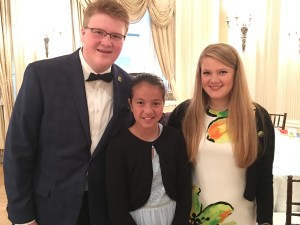 And lastly, allow me to give a special shout out and thanks to the incomparable and ever so kind Pedro Ramos and his lovely daughter, Sarah. Pedro, it is my distinct honor to know you and to know that such a perfect steward of the environment is helping protect the Everglades. Its habitats, animals and I could never thank you enough.
And lastly, allow me to give a special shout out and thanks to the incomparable and ever so kind Pedro Ramos and his lovely daughter, Sarah. Pedro, it is my distinct honor to know you and to know that such a perfect steward of the environment is helping protect the Everglades. Its habitats, animals and I could never thank you enough.
OK, its time to get back to work on local solutions. Despite the circus that’s in Washington right now all of us have important work to do in our local communities, the regions and towns we live in, and in our states. If you’ve read this far then I would ask you to start local, stay local and find ways to make a positive change in your community. That’s my plan and I hope it’s yours too.
